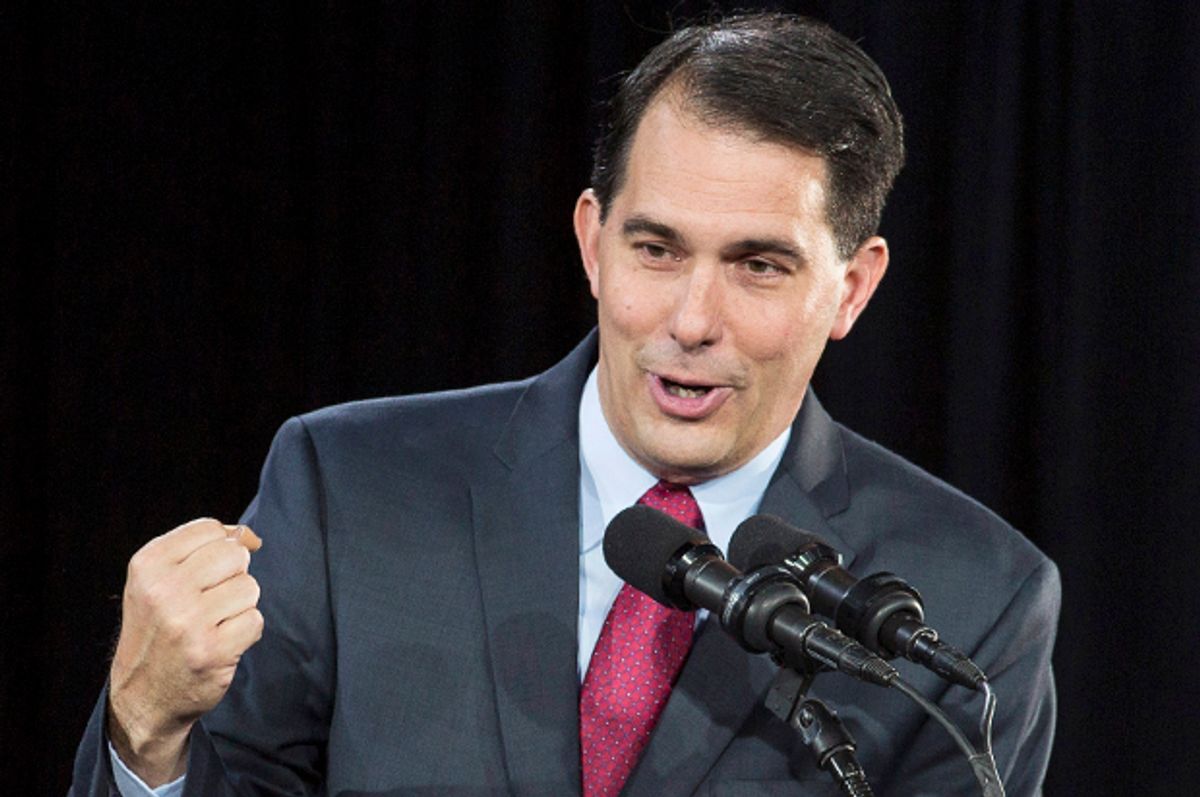Fresh off a reelection victory over Democrat Mary Burke, Wisconsin Gov. Scott Walker is crafting a second-term agenda that's shaping up to be every bit as callous and misguided as the one that defined his first four years in Madison.
As he seeks to burnish his right-wing credentials ahead of a 2016 presidential bid that's looking likelier by the day, Walker is readying a plan to require recipients of food stamps and unemployment benefits in Wisconsin to undergo drug testing, a sweeping proposal that may not even pass constitutional muster.
According to the Wisconsin State Journal, Walker and GOP House Speaker Robin Vos aim to impose the requirements in the next legislative session. Details are still scant, but Walker campaigned on a promise to require “a drug test for those requesting unemployment and able-bodied, working-age adults requesting food stamps from the state.” That would go far beyond current state law, which only imposes mandatory drug testing on food stamp recipients previously convicted of drug-related felonies. Thanks to Bill Clinton's 1996 welfare overhaul, states can also deny welfare benefits to drug users.
After GOP Gov. Rick Scott took office in 2011, Florida enacted requirements similar to those Walker campaigned on. But a U.S. district judge and the 11th Circuit Court of Appeals have ruled that mandatory drug testing absent reasonable suspicion of drug use violates the Fourth Amendment's prohibition on unreasonable government searches. Florida has appealed the 11th Circuit's ruling.
Florida actually spent more money conducting the drug tests than it saved by denying welfare benefits to drug users. Moreover, only 2.6 percent of welfare applicants tested positive for drugs, while Florida's overall illegal drug use rate is an estimated 8 percent. This July, Tennessee began its own drug-testing program for welfare applicants; of 800 applicants, only one tested positive for illegal drugs.
Beyond the constitutional and fiscal issues at stake, there are far more pressing moral questions at hand. Mandatory drug testing undeniably stigmatizes benefit recipients, who actually use drugs at lower rates than the rest of the population. But what about the few who do test positive? Is starvation the proper sanction? Is Walker prepared to abandon the Tea Party's anti-spending orthodoxy and fund more treatment programs for drug users?
But such questions won't bother Walker as he angles to lead a party that views poverty and the disease of drug addiction as moral failures, refuses to reconsider its reflexively anti-government ideology, and offers nothing but pathetically rapt applause for the penny-wise, pound-foolish stunts of Walker & Co.



Shares